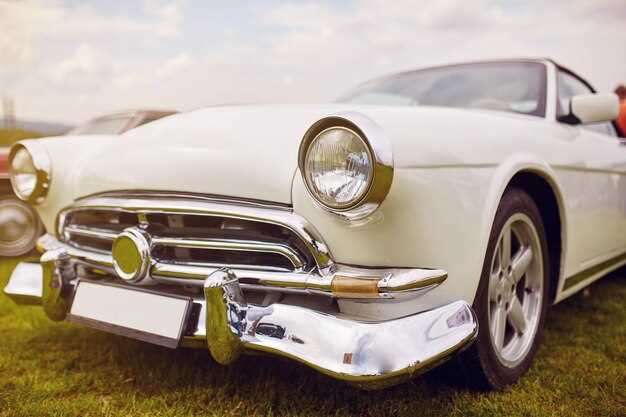
The allure of classic cars captivates enthusiasts and collectors alike, presenting the timeless charm of vintage automobiles that tell a story of their own. As the market for these nostalgic vehicles continues to grow, potential buyers often find themselves at a crossroads: should they pursue the excitement of classic car auctions or seek out private sales for the best deals? Understanding the advantages and disadvantages of each route is crucial for making an informed decision.
Classic car auctions offer a thrilling environment where buyers can compete for sought-after vehicles, often leading to competitive prices and unexpected finds. The atmosphere is charged with anticipation, as bidders raise their paddles, striving to outbid one another. However, this process can come with added pressure and potential for overspending, especially for those new to the auction scene. On the other hand, private sales provide a more personal and potentially less stressful experience, allowing buyers to negotiate directly with sellers. This approach often results in more favorable terms and the opportunity to inspect the vehicle without the haste of an auction.
In navigating the world of classic cars, it’s essential to weigh factors such as pricing, vehicle condition, and emotional investment. By analyzing the nuances of each method, buyers can determine the best strategy for acquiring the classic car of their dreams while maximizing value. Understanding these dynamics is not just about purchasing a car; it’s about securing a piece of automotive history that resonates on a personal level.
Understanding the Auction Process and How to Bid Successfully
Participating in a classic car auction can be an exhilarating experience, but understanding the auction process is crucial for successful bidding. Here’s a breakdown of how an auction typically works and strategies to enhance your bidding success.
The Auction Process
Auctions usually follow a standard procedure that includes the following steps:
- Pre-Auction Registration: Bidders must register before the auction begins. This might involve providing identification and possibly a refundable deposit.
- Inspection Period: Most auctions offer a time frame for prospective buyers to inspect vehicles. Take advantage of this opportunity to evaluate the car’s condition thoroughly.
- Auctioneer’s Introduction: The auctioneer will introduce each vehicle, detailing its history, features, and condition before bidding starts.
- Placing Bids: Bidding typically starts below the reserve price and can escalate rapidly. Be prepared to follow the auctioneer’s lead as they call for bids.
- Winning Bid: The highest bid at the fall of the hammer wins the car. Be aware of buyer’s premiums, which are additional fees added to the final bid.
Strategies for Successful Bidding
To increase your chances of winning at auction, consider the following strategies:
- Set a Budget: Determine your maximum bid before the auction and stick to it to avoid impulse purchases.
- Research: Know the market value of your desired vehicle. Familiarize yourself with previous sales prices and condition reports.
- Observe First: Attend a few auctions as an observer before participating. This helps you understand how bidding progresses and the pace of the auction.
- Bid Confidently: When bidding, raise your hand clearly and decisively. Hesitation can lead to missed opportunities.
- Be Proactive: If you’re interested in a specific vehicle, consider bidding early to deter competition. However, don’t reveal your hand too soon.
- Stay Calm: Auctions can be intense; remain composed to ensure sound decision-making during the bidding process.
Understanding the auction process and employing effective bidding strategies can significantly enhance your chances of securing a classic car at a great price. Be prepared and confident as you navigate the excitement of the auction floor.
Evaluating the Value of Classic Cars in Private Sales

When considering the purchase of a classic car through a private sale, accurately evaluating its value is crucial for ensuring a good deal. Several key factors must be taken into account to arrive at a fair market price.
First, the condition of the vehicle plays a significant role in determining its value. Assessing aspects such as the exterior paint, body integrity, and interior condition can provide insights into the car’s overall quality. A thorough inspection should also include mechanical components, such as the engine, transmission, and brakes, to ensure all parts are functioning well. Documentation of maintenance history and any restorations can enhance a car’s value if the work has been done properly.
Next, rarity and demand are important considerations. Classic cars that were produced in limited numbers or are highly sought after by collectors typically command higher prices. Researching current market trends and understanding which models are in demand can help buyers gauge potential investment value. Online forums, auction results, and classic car clubs can serve as valuable resources for gathering this information.
Provenance, or the history of ownership, can also influence a classic car’s value. A well-documented history that includes previous owners, notable figures, or participation in significant events can enhance desirability. Collectors often seek cars with fascinating backstories, which can lead to increased market value.
Additionally, geographic factors should not be overlooked. The classic car market can vary significantly by region, influenced by factors such as local interest, climate conditions, and laws pertaining to vehicle registrations. Buyers should evaluate regional trends to determine if they are overpaying or finding a bargain based on local demand.
Finally, establishing a reasonable budget before engaging in private sales is essential. Buyers should consider not just the purchase price but also potential restoration costs, maintenance, and insurance. Understanding total ownership costs can help in making an informed decision, ensuring that any acquisition remains financially sound in the long term.
Key Negotiation Strategies for Buying Classic Cars

When engaging in negotiations for classic cars, preparation is key. Start by researching the specific make and model you are interested in. Understanding the market value, common issues, and recent sale prices will give you a solid foundation for negotiation. Utilize resources such as online auctions, enthusiast forums, and classic car valuation guides to gather comprehensive data.
Establish a budget that includes not just the purchase price, but potential restoration or maintenance costs. This helps set clear boundaries during negotiations and prevents overspending. Be ready to walk away if the deal doesn’t meet your financial criteria; this sends a strong message that you are serious about your budget.
During negotiations, maintain a calm and confident demeanor. Use your research to present facts that support your offer. Highlight any concerns or issues with the vehicle to justify a lower price. For example, mention rust spots, engine problems, or lack of documentation that could affect the car’s value.
Build rapport with the seller. Establishing a connection can make them more inclined to negotiate favorably. Listen carefully and ask open-ended questions to gain insights into the car’s history and the seller’s motivations. Understanding their position can give you leverage in negotiations.
Be patient and willing to compromise. Often, negotiations take time, and it’s essential to avoid rushing the process. Consider alternative offers, such as including additional items or services, to create a win-win situation. Remember, successful negotiations often result in both parties feeling satisfied with the outcome.
Lastly, secure a pre-purchase inspection from a trusted mechanic before finalizing the deal. This can reveal hidden problems and serve as a decisive factor in your negotiation strategy. If issues arise during the inspection, use this information to renegotiate the price or ask the seller to make necessary repairs.
